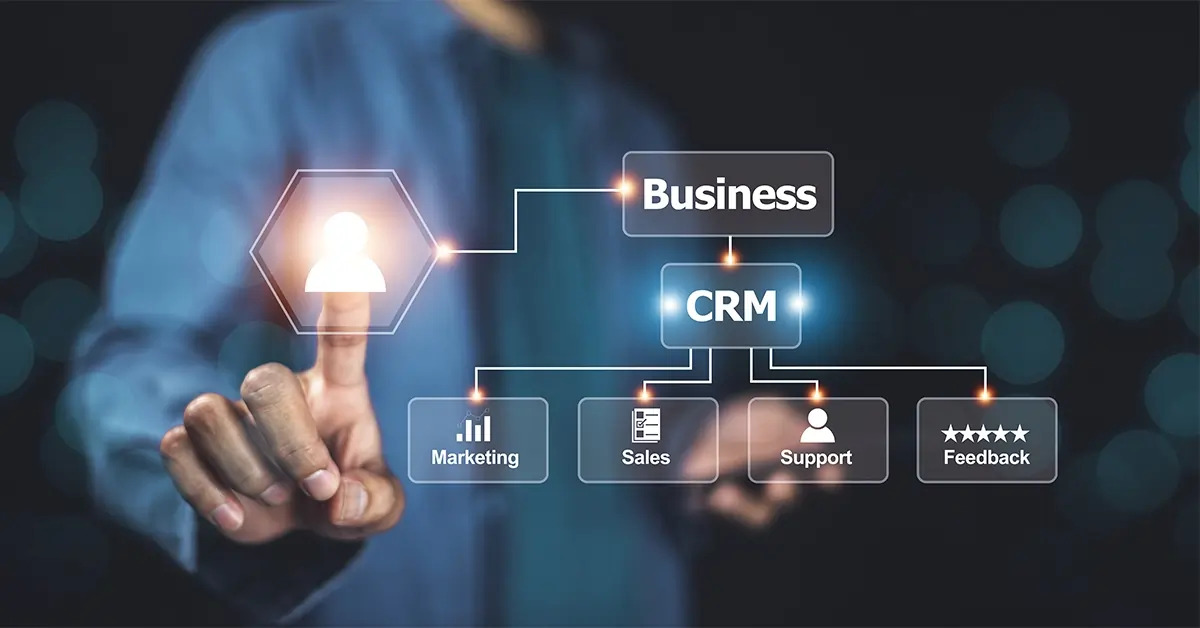Call Center CRM: Definition, Software & Best Practices

Imagine running a business without having customer service.
Customer service is crucial for companies as it helps build strong customer relationships and improves customer satisfaction. Therefore, running an efficient and customer-centric call center is more important than ever.
However, managing customer interactions effectively is not as easy as it looks. It requires a certain level of competence. Call center CRM (Customer Relationship Management) software fills this gap.
This blog will cover call center CRM, how it works, and the best practices to make the most of it.
Table of Contents:
- What is a Call Center CRM?
- Features to Consider When Picking a Call Center CRM
- Best Practices to Follow When Implementing a Call Center CRM
What is a Call Center CRM?
Contact centers use specialized technology called customer relationship management, or CRM, to monitor and maximize customer interactions.
Unlike traditional CRM systems, call center CRM solutions are designed to manage multiple customer contacts daily. To handle issues quickly, these technologies streamline the process of organizing client data, recording encounters, and providing information to agents.
Features to Consider When Picking a Call Center CRM
1. Centralized Customer Data
CRM systems track customer data in one place, allowing agents to access complete and current profiles. This contains purchase data, contact information, and interaction history, among other things.
2. Omni-Channel Support
Contemporary contact center CRM systems connect across various channels, such as social media, chat, email, and phone. This keeps the client experience consistent while enabling agents to move across channels easily.
3. Automated Workflows
CRM solutions for contact centers rely heavily on automation. They enable agents to focus on more difficult client concerns by automating time-consuming duties such as data input, follow-ups, and call monitoring.
4. Real-Time Analytics
CRM offers real-time data and analytics on call center performance, agent efficiency, and customer satisfaction. This data-driven strategy speeds up the process of making educated decisions to enhance operations.
5. Call Scripting
Using CRM, agents may use pre-written scripts to ensure that customer interactions are precise and consistent. This functionality is very helpful for addressing frequent questions and problems.
6. Interface Capabilities
CRM interface with other systems like ERP, marketing automation, and e-commerce platforms is crucial for information to flow efficiently across the organization.
Best Practices to Follow When Implementing a Call Center CRM
Contact center CRM best practices must be followed during installation and use to receive the full benefits. Here are a few crucial recommended practices to think about:
- Establish Clear Goals:
Integrate call center CRM and establish clear goals and objectives. This can entail raising customer satisfaction, decreasing call handling times, or raising FCR rates.
- Choose the Right CRM Solution:
Choose a CRM system that complements your contact center’s objectives and unique requirements. Consider elements like usability, scalability, and integration potential.
- Make Sure Integration is Seamless:
Make sure CRM integrates with other tools and systems in an easy-to-use manner. This covers e-commerce solutions, marketing automation platforms, and ERP systems.
- Effectively Train Agents:
Agents should receive thorough instructions on how to operate the CRM system. This entails using automation tools, browsing the UI, and comprehending the functionality.
- Monitor and Optimize:
Use the CRM’s analytics and reporting features to monitor the call center’s performance continuously. Use this data to pinpoint areas for improvement and adjust procedures accordingly.
- Ask for Feedback:
Regularly ask for feedback from your agents to understand their experiences and identify any problem areas. Use this feedback to make necessary improvements to the CRM system and processes, ensuring things run more smoothly for everyone.
- Stay Updated:
Update your CRM software to reflect the most recent security updates and feature additions. This guarantees the safe and effective operation of the contact center.
To Sum it Up
Utilizing a strong contact center CRM system is crucial for providing outstanding customer service and streamlining contact center operations in the cutthroat corporate world of today.
CRM increases agent productivity by centralizing customer data, automating processes, and offering real-time analytics.
Purchasing a contact center CRM is more than simply better call center operations CRM; it’s also about fostering enduring client connections and accelerating expansion.
Related Post
Copyright © gocustomerexperience.com. All Rights Reserved.




